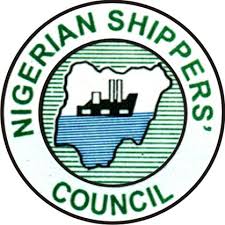05 July 2015, Lagos – With what appears like conflicting roles, the Nigeria Customs Service (NCS) and the Council for the Regulation of Freight Forwarding in Nigeria (CRFFN), both agencies of the federal government, have been engaged in a battle for the control of the freight forwarders or customs brokers in the ports, writes Francis Ugwoke

The scenario in the nation’s ports is that there is rivalry between the Nigeria Customs Service (NCS) and the Council for the Regulation of Freight Forwarding in Nigeria (CRFFN) on who controls the customs agents, also referred to as freight forwarders or customs brokers. This situation came to play shortly after the establishment of CRFFN in 2007, described as a child of circumstance, to organise the practitioners on the path of professionalism.
The bad image associated with the practitioners was responsible for this. But the allegation is that the Customs has not been comfortable with the birth of CRFFFN for the fear of losing relevance under the new dispensation. Often time, some top officials of the Customs have been accused of making frantic moves to ‘kill’ CRFFN in order to maintain control over the practitioners. This is an allegation that has been denied by top customs officials.
Customs, CRFFN Provisions
Both Customs and CRFFN have regulatory powers over the practising agents. Section 156 (1) of the Customs and Excise Management Act (CEMA) titled “Customs and Excise Agents (Licensing) Regulations” provides for the control of the agents through licensing. CEMA empowers Customs to control “the customs brokerage”. After being licensed, any practitioner, mainly corporate bodies who goes contrary to the regulation can be penalized, including suspension or cancellation of the licence. Similarly, CRFFN Act of 2007 gives the Council the power to determine the standards of knowledge and skill to be obtained by persons seeking to be registered as freight forwarder. CRFFN registers every freight forwarder to allow him practise. Maritime lawyer, Mr Okwudili Alagbu, who commented on the issue notes that the Customs licence regime as an instrument of sectoral control appears to have earned the respect of the draftman in the CRFFN Act as he made unequivocal efforts to save its use and administration. Alagbu points out that Section 19 (1) of CRFFN Act provides that “notwithstanding the provisions of any other laws, any government agency responsible for granting of permits, approvals and licenses to freight forwarders shall in addition to any other requirement, require the applicant to submit a certificate of registration as a registered freight forwarder issue by the Council” ..
The CRFFN Act added in what is seen as clearing any ambiguity, “Every freight forwarder licensed under the CEMA prior to the coming into force of this Act, shall immediately after the commencement of this Act, submit to the Nigeria Customs Service and any relevant authority, a certificate of registration issued by the council”. By implication, the above provisions in CRFFN Act, means that the Council appears to have overriding control of the freight forwarders. This is because irrespective of the licence issued by the Customs, the freight forwarder still needs to register with the CRFFN to practice.
Conflict of Interest
As clear as it appears that the CRFFN is in control in the provisions, the truth of the matter is that practically, it has not been so. The Councils appears to be bare-footed. In effect, with a lot of resources at its disposal, the Customs is still having upper hand as many of its top officials do not reckon with CRFFN. Even with the CRFFN provision that the professional registration of freight forwarders with it is a condition precedent for issuance of Customs Licence, there is doubt that this is being followed. And there is nothing the CRFFN can do about it since anybody with a Customs Licence can be allowed to clear goods at the ports. Section 19 of the CRFFN Act provides that such licence from the Customs shall be regarded as invalid while Section 14(2) expressly forbids any persons or company from practising in any branch of freight forwarding without first registering in accordance with this Act, yet in practice, many practitioners who got their licences without first registering with CRFFN have continued to operate freely. The belief is that those who flout the regulations know that since the Customs does not forbid them from practising, the CRFFN may not have the capacity to check them. In the area of training, while both Customs and CRFFN enjoy statutory powers to train freight forwarders, Alagbu points out that the powers of the Customs in the area of training has since the enactment of the CRFFN Act No. 16 been thinned down to the training of its officers, while the professional training of any genre of freight forwarders, including customs brokers has by virtue of the provisions of Section 15-17 of the CRFFN Act been vested exclusively in the Council.
Division Among Customs Brokers
Whether a customs agent, customs broker, clearing agent or freight forwarder, it is all the same. But among practitioners in the industry, it is a question of choice, depending on which association one belongs. Many members of Association of Nigerian Licensed Customs Agents (ANLCA) would prefer to be referred to as customs brokers, which became popular in Nigeria some years back when the ANLCA President, Prince Olayiwora Shittu, travelled to the United States and came back with the professional name. Shittu had then tried to differentiate between customs brokerage and freight forwarding. Since then, Shittu has seen himself as a customs broker, away from the more expanded title of freight forwarder which subsumes customs brokerage. On the other hand, practitioners under the National Association of Government Approved Freight Forwarders (NAGAFF), National Association of Freight Forwarders and Consolidators (NAFFAC); National Council of Managing Directors of Licensed Customs Agents (NCMDLCA) and the Association of Registered Freight Forwarders, Nigeria (AREFFN) see themselves as freight forwarders. The reason is that freight forwarding apart from having more branches of business, is seen as more dignifying than anything that has to do with customs agent because of the bad image.
How to Resolve the Conflict
Alagbu opined that what exists as conflict between the Customs and CRFFN Acts is simply outside the statutory provisions. He added that the two Acts are quite “clear, distinct and unambiguous”. But he observed that the Customs Service does not appear to be disposed to embracing the changes introduced by the CRFFN. This is seen by way of the Customs refusing to concede or share responsibilities in the appropriate statutory designated areas for “fear of losing relevance in a profession where it had held sway as a colossus since 1958”.
Similarly, the CRFFN is accused of being “shy to take up the mantle of responsibility even in the face of a brazen usurpation of its core statutory functions by the Customs”. But the truth is that the Council is suffering a lot challenges in terms of resources to execute its statutory obligations.
Okwudili added, “wittingly or unwittingly, this situation has given an impetus to the emergence of Customs brokerage as an imperium in imperium (an empire within an empire) with the effect that Customs brokerage (which is personified by “Customs Licensed Agents”) and freight forwarding now seem to exist as two distinct professions with one controlled by the Customs Service and the other by the CRFFN with both of them operating as if they are mutually exclusive of each other”.
Describing the CRFFN as the ombudsman and a clearing house of all freight forwarding activities which power has been statutorily entrenched, Okwudili argues that what is needed was for the Council to “jump into the driver’s seat to move the freight forwarding profession to its glory”. Part of the measures he recommended was for the CRFFN to precipitate inter-ministerial collaboration between the Ministry of Transport and that of Finance for both agencies to “ensure effective collaboration wherever the statutory functions of the two may overlap”. The CRFFN was also advised to publicise its statutory functions clearly to the freight forwarders on the process of becoming a professional. CRFFN was also told to write an advisory warning letter to the Customs with a view to stop them from further usurpation of its statutory functions. The CRFFN is also expected to write the Corporate Affairs Commission (CAC) to explain its functions and request for the imposition of CRFFN membership registration certificate as a mandatory proficiency qualification to be possessed by directors who intend to incorporate freight forwarding companies. Among others, Alagbu argued that the Council was entitled to seek injunctive reliefs in appropriate Court of law to check any breach of any of its statutory roles.
– This Day



